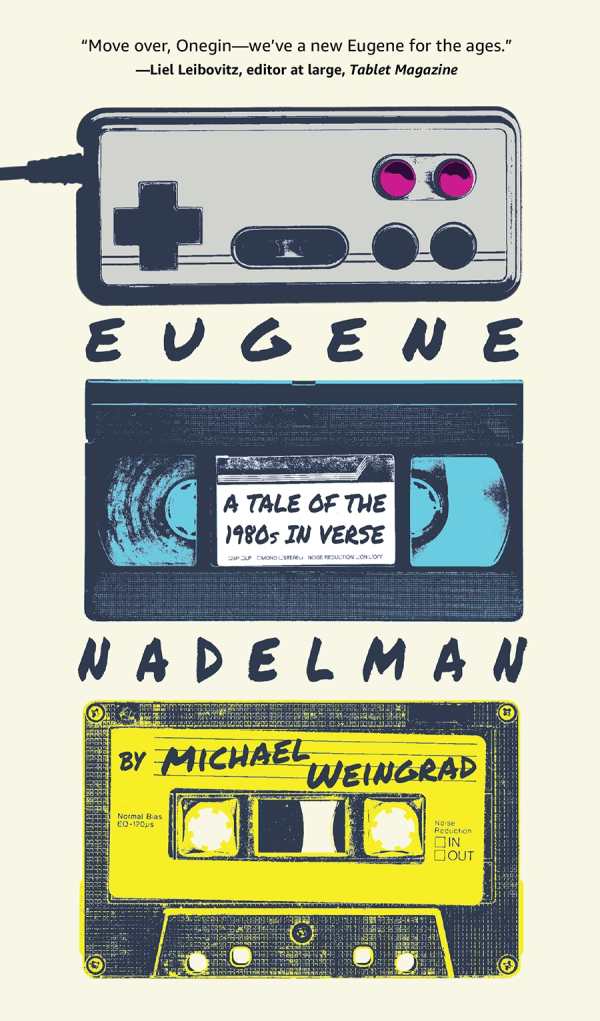Eugene Nadelman
A Tale of the 1980s in Verse
In Michael Weingrad’s slim, nostalgic literary novel Eugene Nadelman, a nerdy Jewish boy comes of age in 1980s Philadelphia.
Eugene shares his first name, and the book its format, with Alexander Pushkin’s novel-in-verse Eugene Onegin. His youth is marked by experiences like a formative first crush, meeting a girl at his cousin’s bar mitzvah in the suburbs, his first game of spin the bottle, and taking part in role-playing games with his friends.
This is a wistful and emotionally resonant novel that finds true poetry in teenage life. Its epic is split into several chapters that are peppered with pop-culture references. The narrator sometimes breaks the fourth wall to explain the parallels between his life and Eugene’s, too: “Indeed, the sentimental journey / that was my early childhood / commenced with Big Bird, Bert, and Ernie.” And when Eugene and his friends play Dungeons & Dragons, the scene is interspersed with snippets of their conversations at the table and peeks into their in-game adventures: “It uses the imagination / as well as polyhedral dice / and miniature for more precise / results to build a joint narration.” A rivalry between Eugene and another player with a crush on the same girl bleeds into the game, with their characters competing as proxies for her affection. But even when the circumstances seem to look up for the young couple, their interests diverge; their plans to spend summer at camp together fall through. Such everyday dramas, so critical in Eugene’s young life, are given weight throughout.
Told through iambic verse and grounded in its time and place, the novel Eugene Nadelman pays homage to Pushkin with its story of a 1980s boyhood.
Reviewed by
Jeff Fleischer
Disclosure: This article is not an endorsement, but a review. The publisher of this book provided free copies of the book to have their book reviewed by a professional reviewer. No fee was paid by the publisher for this review. Foreword Reviews only recommends books that we love. Foreword Magazine, Inc. is disclosing this in accordance with the Federal Trade Commission’s 16 CFR, Part 255.

